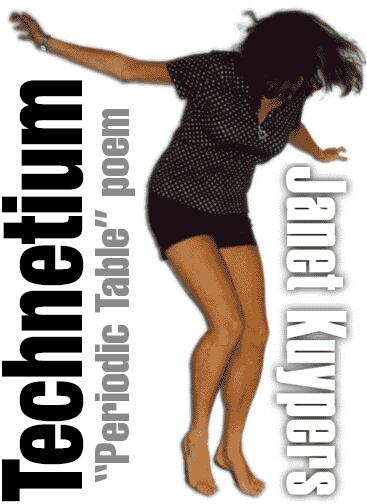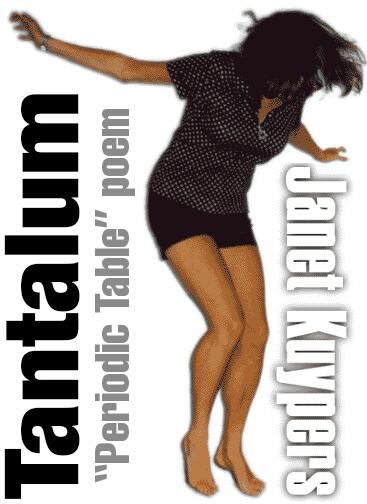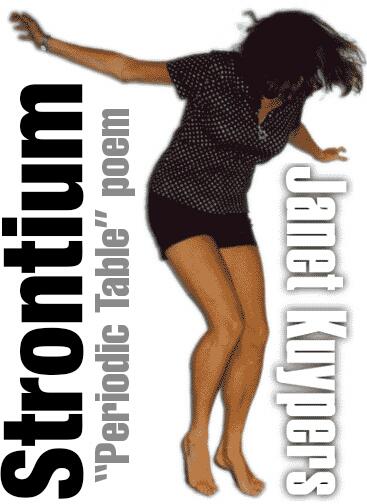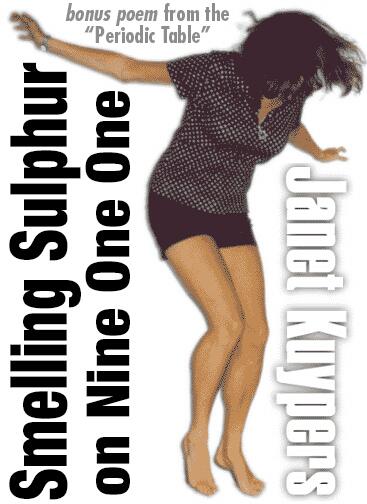Tellurium
Janet Kuypers
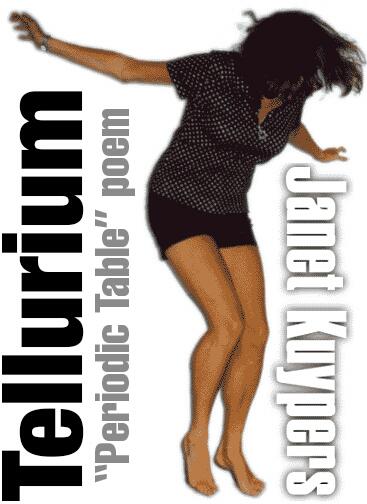
from the “Periodic Table of Poetry” series (#52, Te)
7/13/13
When a couple is meant to be together
(but at their core they’re nothing alike),
you can see them come together almost violently,
before their anger pushes them away from each other.
Until they do it again, and again, and again.
It’s like they can’t stop. They can’t help it.
They rush to each other for a mad embrace,
they feel intense attraction that they can’t escape,
‘til they know despite their lust, they hate each other so,
and they do everything they can to break free.
It’s a sick cycle they’re stuck in.
This coming together. Then rushing apart.
#
There’s electricity in the air. I hear the buzz
whenever I walk by that street corner and see
all of the electrical wires, crossing in every direction —
I can hear the loose electricity jumping into the air.
Do you know why electric wires are spaced far apart
when they’re up high on poles like that? Well,
that’s because those Tellurium metal alloy wires
up high in the sky like that aren’t even insulated —
and they have a strong magnetic field with all that electricity
coursing through them. If wires were closer to each other
while up in the air, the wires would swing toward each other
because of their insanely strong magnetic attraction.
In being drawn to each other, an arc may form
between the wires, destroying them almost instantly.
But then again, magnetism in the wires switches polarity
a hundred and twenty times every second
(because ofelectricity’s sixty hertz frequency)…
That would make those wires want to repel each other
as often as they were magnetically drawn to each other.
So yes, for one hundred twenty times every second,
these wires would vibrate back and forth.
So if there’s no electric arc, these Tellurium metal
alloy wires would vibrate so intensely and violently,
that if they weren’t kept far apart
they would destroy each other, vibrating.
#
Tellurium is used in alloys with steel
to make high-strength conductors.
Abundant cosmically but rare on Earth,
it’s often found combined with gold:
in the first gold rush, this mix looked like waste,
so they used it to fill potholes or sidewalks.
Once they realized it was Tellurium and gold,
there was a second gold rush…
Acute poisoning with Tellurium is rare;
most organisms tolerate Tellurium.
Organic tellurides have antioxidant activity.
and can even be used to identify pathogens
responsible for diphtheria.
It’s optical refraction makes it perfect for glass.
It’s been used in color ceramics,
and gives rubber heat resistance,
In copper, iron, lead or stainless steel,
it makes the metals more machinable,
improving solar cell efficiency and electric
power generation, so it helps any energy.
I don’t know,
maybe that explains why
we’ve been feeling
this electricity in the air.

